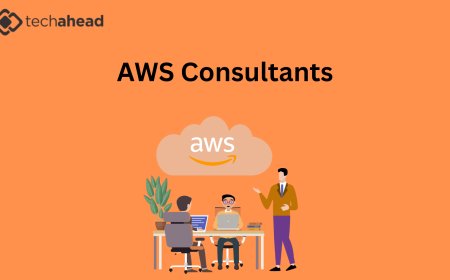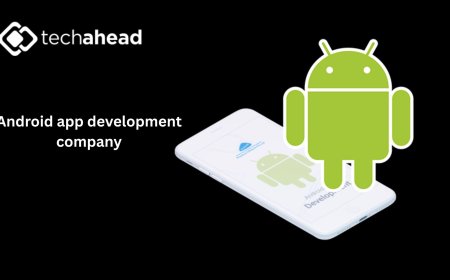What Are the Limitations of Using AI in Software Development?
AI is reshaping how we approach software development, offering speed and automation — but it comes with limitations. From poor contextual understanding to potential security and compliance risks, startups must tread carefully. The smartest strategy? Collaborate with AI while relying on a skilled software development company to bring true innovation and stability.

In the age of smart everything, its tempting to believe that artificial intelligence (AI) can do it all even build your software from the ground up. For startups and entrepreneurs, this sounds like a dream: faster development, fewer errors, and lower costs. But is it really that simple?
While AI tools like ChatGPT, GitHub Copilot, and others have started playing a major role in software development, they arent magic wands. In fact, relying too heavily on AI without understanding its limitations can cost more than it saves.
Lets explore where AI shines, and more importantly, where it still falls short in the software development process.
What AI Can Do in Software Development
Before we talk about limitations, its important to understand what AI is already doing well. AI tools are great at:
-
Autocompleting code based on patterns
-
Generating boilerplate code
-
Identifying bugs and suggesting fixes
-
Assisting in writing documentation
-
Recommending code optimizations
These features help developers save time and reduce repetitive tasks. But theyre just tools not replacements for developers.
Limitation #1: Lack of Deep Contextual Understanding
One of the biggest issues with AI is that it doesnt truly understand the why behind your product.
Lets say youre building a fintech app for freelancers. AI can write some login logic or suggest a way to store user data. But it wont know your specific user base, compliance requirements, or market needs unless you tell it, and even then, the understanding is shallow.
AI lacks human-level empathy, business awareness, and user-focused reasoning. It can generate code, not solutions.
Limitation #2: Quality and Accuracy Can Be Unpredictable
Just because AI generates code doesnt mean its correct or secure.
-
AI may introduce hidden bugs or security vulnerabilities.
-
It might suggest outdated or inefficient coding practices.
-
Sometimes, it "hallucinates" solutions making things up that look legit but don't work.
Startups that blindly copy-paste AI-generated code risk launching unstable products. Human code reviews and real-world testing are still critical.
Limitation #3: No Creativity or Innovation
AI is great at remixing existing information, but it cant truly create something new.
A visionary feature? An elegant UX flow? A groundbreaking backend logic tailored to your startup model? That still requires human creativity and strategic thinking qualities AI cant replicate.
So, if youre building a product meant to disrupt your industry, AI can assist, but it cant lead the way.
Limitation #4: Over-Reliance Can Weaken Developer Skills
Ironically, the more we rely on AI to write code, the less confident some developers become in writing it themselves.
This creates a long-term risk: developers may lose their edge in solving tough challenges or understanding the deeper architecture of a project. For startups, thats dangerous. You need a team that can think independently not just take shortcuts.
Think of AI as a calculator: great for speeding up tasks, but you still need to know math.
Limitation #5: Data Privacy and Intellectual Property Risks
When using AI tools, youre often feeding your project data into third-party systems. That can raise serious privacy and IP concerns, especially if:
-
You're working on sensitive projects
-
The code includes proprietary logic
-
You're in a regulated industry (finance, healthcare, etc.)
Some AI models may retain or learn from your inputs, and its not always clear where that data goes. Startups must be especially cautious here your competitive edge could be exposed.
Limitation #6: Poor Handling of Complex Architectures
AI can handle small components or functions, but it often struggles with complex, multi-layered systems.
Need an AI-generated snippet to sort data or validate an email address? Easy.
Need AI to design a scalable microservices architecture for your cloud app? Thats way out of its league.
AI lacks the big-picture thinking and long-term architectural planning needed for enterprise-level software development.
Limitation #7: Ethics, Bias, and Compliance Blind Spots
AI cant guarantee fairness or compliance. Its trained on existing data which often includes bias.
For example:
-
It might recommend practices that unintentionally exclude users with disabilities.
-
It may not meet GDPR or HIPAA compliance standards.
-
It doesnt understand accessibility, localization, or ethical design.
If your startup is user-focused (and it should be), AI wont be able to make those human-centered calls for you.
Why the Future Is Human + AI Not Human vs AI
AI isnt here to replace software developers. Its here to help them build smarter, faster, and with more confidence when used wisely.
The ideal approach for startups?
Leverage AI for what it's good at: boosting productivity, reducing busywork, and sparking new ideas. But keep humans at the center for strategy, creativity, and final decision-making.
In short: AI helps you move faster but only in the direction you choose.
Conclusion
AI is transforming the landscape of software development. But its not without limits and those limits can be costly if overlooked.
From lack of contextual understanding to security risks, creative blind spots, and compliance issues, AI still needs a human partner to truly deliver value. For startups and entrepreneurs, the smartest move isnt to hand over the reins to AI its to collaborate with it.
The most effective approach is to partner with a software development company that understands how to blend AI tools with real-world expertise. Use AI as your assistant but keep the vision, innovation, and responsibility in human hands.
FAQs
Q: Can AI build an entire app by itself?
Not yet. It can generate components and speed up development, but it still needs human guidance, integration, and testing.
Q: Is it safe to use ChatGPT for writing production-level code?
Not without a review. Always validate AI-generated code with professional developers to avoid bugs or vulnerabilities.
Q: How do I get started using AI in my software development workflow?
Start small. Use tools like GitHub Copilot or ChatGPT for documentation or snippets, then gradually expand into more areas with oversight.


































